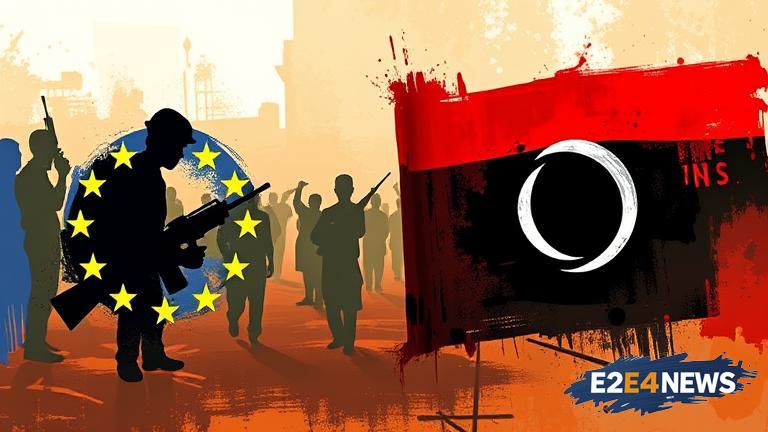The European Union has faced criticism for its handling of the arms embargo in Libya and Darfur, with many accusing the organization of failing to take adequate action to prevent the flow of weapons into the regions. Despite the implementation of an arms embargo, evidence suggests that weapons have continued to pour into Libya and Darfur, fueling violence and human rights abuses. The situation in Libya has been particularly dire, with the country plagued by conflict and instability since the overthrow of Muammar Gaddafi in 2011. The EU’s failure to effectively enforce the arms embargo has been blamed for exacerbating the situation, allowing weapons to fall into the hands of militant groups and fueling further violence. In Darfur, the situation is equally concerning, with reports of widespread human rights abuses and violence committed by government-backed militias. The EU’s inaction has been criticized by human rights groups, who argue that the organization has a moral obligation to take action to prevent further suffering. The arms embargo was initially implemented in an effort to prevent the flow of weapons into the regions and to reduce the risk of further violence. However, despite the embargo, weapons have continued to flow into Libya and Darfur, with many being sold on the black market or falling into the hands of militant groups. The EU’s failure to effectively enforce the embargo has been blamed on a lack of resources and a lack of political will. Many have criticized the EU for prioritizing economic interests over human rights, with some arguing that the organization is more concerned with maintaining good relations with countries in the region than with taking action to prevent human rights abuses. The situation in Libya has been further complicated by the presence of foreign powers, including Russia and Turkey, who have been accused of fueling the conflict by providing military support to rival factions. The EU’s inability to take effective action has been blamed on a lack of unity among member states, with some countries prioritizing their own national interests over the need to take collective action. The consequences of the EU’s inaction have been devastating, with thousands of people killed or displaced in Libya and Darfur. The humanitarian crisis in the regions has been exacerbated by the EU’s failure to take action, with many people forced to flee their homes or seek refuge in other countries. The EU’s reputation has been damaged by its handling of the crisis, with many criticizing the organization for its lack of leadership and its failure to take effective action. The situation in Libya and Darfur is a stark reminder of the need for the EU to take a more robust approach to enforcing the arms embargo and to prioritize human rights over economic interests. The EU must take immediate action to address the crisis, including increasing support for humanitarian efforts and taking steps to effectively enforce the arms embargo. The organization must also work to build a more unified approach to addressing the crisis, with all member states working together to take collective action. The EU’s failure to take action has been a betrayal of the people of Libya and Darfur, who have been left to suffer as a result of the organization’s inaction. The EU must learn from its mistakes and take a more proactive approach to addressing the crisis, prioritizing human rights and taking effective action to prevent further violence. The situation in Libya and Darfur is a complex and multifaceted one, requiring a comprehensive and coordinated response from the EU. The organization must work to address the root causes of the conflict, including poverty, inequality, and lack of access to education and economic opportunities. The EU must also work to support the development of democratic institutions and the rule of law, helping to build a more stable and secure future for the people of Libya and Darfur. The EU’s response to the crisis must be guided by a commitment to human rights and a determination to take effective action to prevent further suffering. The organization must be willing to take a stand against those who are fueling the conflict, including foreign powers and militant groups. The EU must also be willing to provide support to those who are working to build a more peaceful and stable future, including humanitarian organizations and local communities. The situation in Libya and Darfur is a stark reminder of the need for the EU to take a more proactive approach to addressing global crises, prioritizing human rights and taking effective action to prevent further violence. The EU must learn from its mistakes and take a more robust approach to enforcing the arms embargo, working to build a more stable and secure future for the people of Libya and Darfur.
